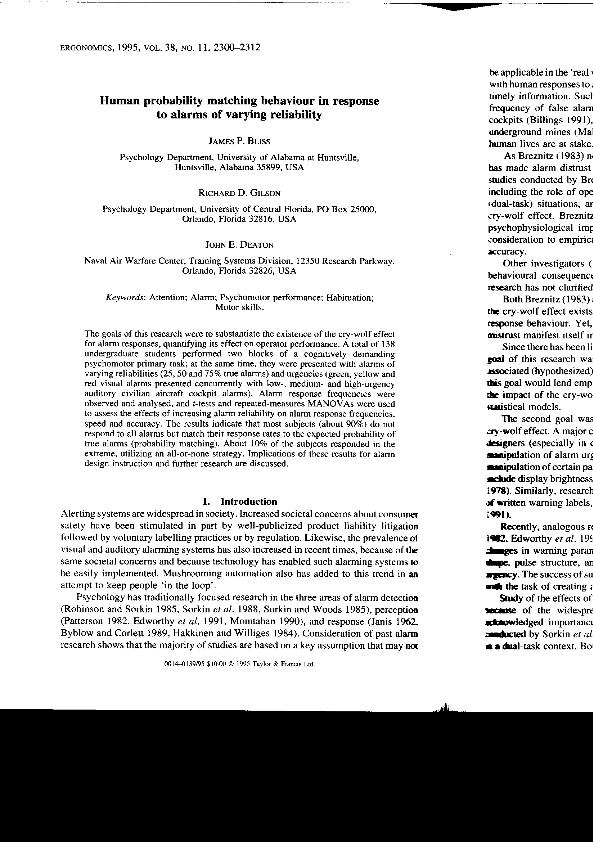Human probability matching behaviour in response to alarms of varying reliability

Contenido multimedia no disponible por derechos de autor o por acceso restringido. Contacte con la institución para más información.
| Tag | 1 | 2 | Valor |
|---|---|---|---|
| LDR | 00000nab a2200000 i 4500 | ||
| 001 | MAP20071025239 | ||
| 003 | MAP | ||
| 005 | 20080418121147.0 | ||
| 007 | hzruuu---uuuu | ||
| 008 | 960701e19951101gbr|||| | |00010|eng d | ||
| 040 | $aMAP$bspa | ||
| 084 | $a875 | ||
| 100 | 1 | $0MAPA20080123994$aBliss, James P. | |
| 245 | 1 | 0 | $aHuman probability matching behaviour in response to alarms of varying reliability$cJames P. Bliss, Richard D. Gilson, John E. Deaton |
| 520 | $aThe goals of this research were to substantiate the existence of the cry-wolf effect for alarm responses, quantifying its effect on operator performance. A total of 138 undergraduate students performed two blocks of a cognitively demanding psychomotor primary task; at the same time, they were presented with alarms of varying reliabilities and urgencies. The results indicate that most subjects do not respond to all alarms but match their response rates to the expected probability of true alarms | ||
| 650 | 1 | 1 | $0MAPA20080550653$aErgonomía |
| 650 | 1 | 1 | $0MAPA20080540814$aDiseño |
| 650 | 1 | 1 | $0MAPA20080542733$aAlarmas |
| 650 | 1 | 1 | $0MAPA20080603922$aSeñalización acústica |
| 650 | 1 | 1 | $0MAPA20080600389$aComportamiento humano |
| 700 | 1 | $0MAPA20080219086$aGilson, Richard D. | |
| 700 | 1 | $0MAPA20080128517$aDeaton, John E. | |
| 740 | 0 | $aErgonomics | |
| 773 | 0 | $tErgonomics$dLondon and Washington$gVol. 38, nº 11, November, 1995 ; p. 2300-2312 |

